News in brief: Minister confirms Covid jabs will only be made available to children and teenagers if they are vulnerable to the virus
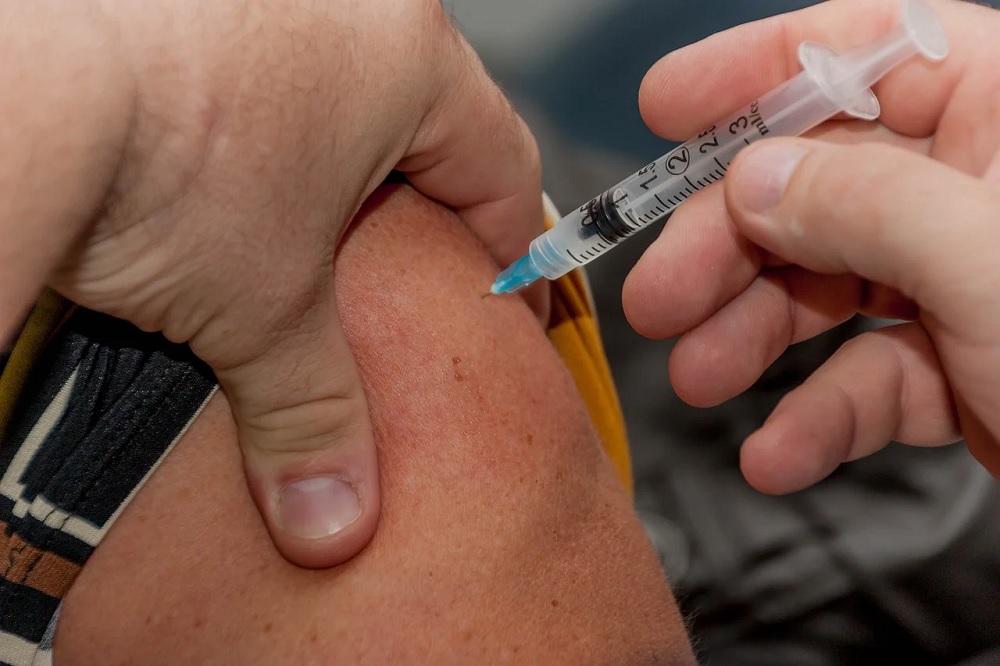
Eluned Morgan, Minister for Health and Social Services, has confirmed the Welsh Government will follow the advice of the UK’s Joint Committee for Vaccination and Immunisation (JCVI) and only offer Covid jabs to children and teenagers if they are vulnerable to the virus.
The JCVI recommends that children and young people aged 12 -15 years with specific underlying health conditions that put them at serious risk should be offered the vaccine as should youngsters who are household contacts of people who are immunosuppressed.
Seventeen-year-old within three months of their 18th birthday will also be prioritised for the vaccine, including those intending to go to university later in the year.
“I am aware there have been calls for children to be vaccinated to prevent them getting post-acute Covid-19 syndrome (long COVID), the minister said in a written statement.
“Covid rates in children are relatively low and there is still limited information about the overall direct effects of the virus on them. However, studies are emerging which show that this risk is very low in children, especially in comparison with adults, and similar to the secondary health complications of other respiratory viral infections in children.
“My officials remain in close contact with the Royal College of Paediatrics and Child Health on this matter and have established a group to consider the impacts of Long COVID on both adults and children and co-ordinate the wide-ranging response needed.”
Reiterating calls for more people to take up the offer of a jab, Ms Morgan added, “we need more people to be vaccinated. “
“One in four under 40s are yet to be vaccinated and that is where we are now seeing high levels of infections. The success of the vaccination programme is a key factor in our ability to release restrictions and the vaccine continues to be the best way to prevent serious illness and the spread of Covid-19.
“I strongly urge everyone who is eligible to take-up both doses. Please keep asking friends and family if they have taken up their offer and encourage them to come forward if they haven’t already. Vaccination centres across many parts of Wales are open for walk-in appointments.”
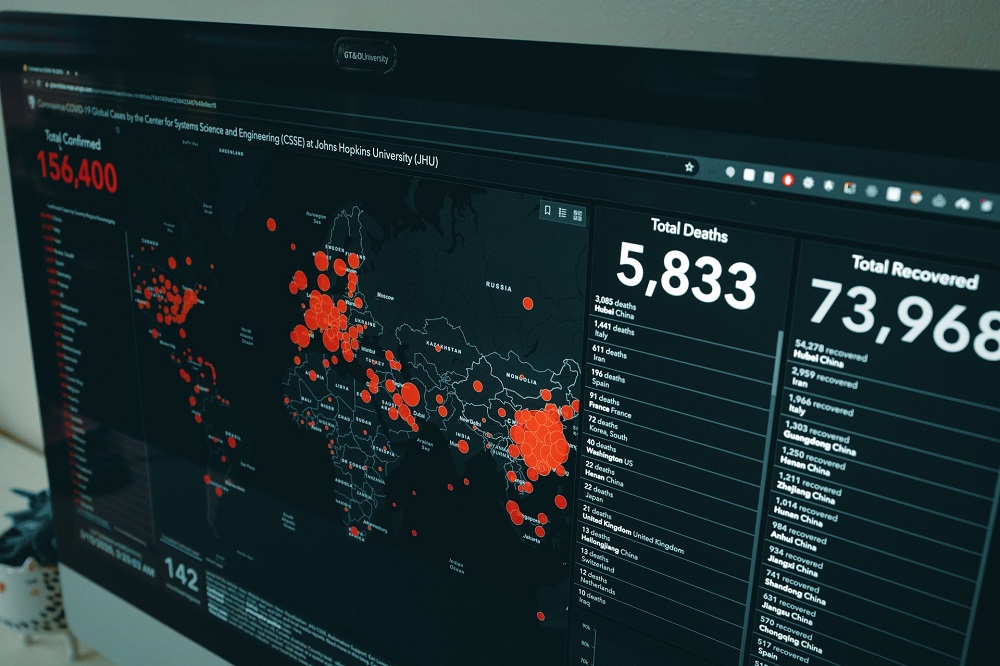
Three further Covid deaths confirmed in latest ONS report
Latest figures from the Office for National Statistics have confirmed three deaths involving Covid-19 were registered in Wales over the week ending 9 July, the same number as the previous week.
The number of deaths registered from all causes was 639, 70 more than the week before and 15.1% above the five-year average (84 more deaths).
Deaths from all causes were also above average in England and Scotland for the same week, while figures for Northern Ireland have been delayed due to a bank holiday.
Since the start of the pandemic in March 2020, number of deaths registered in Wales is 49,486. Of these, 7,907 deaths (16.0%) mentioned Covid-19, 4,979 deaths above the five-year average.
Deaths counted by the ONS are when Covid-19 is mentioned by doctors on the death certificate and which occur in all settings – including hospitals, care homes, hospices and people’s homes.
The daily figures released by Public Health Wales only include the deaths of a hospital patients or care home resident where Covid-19 has been confirmed with a positive laboratory test and the clinician suspects this was a causative factor in the death.
PHW has reported no new deaths due to Covid in today’s report, meaning the total number of deaths due to the virus remains 5,589.
Over the last 24 hours a further 555 people have tested positive for the virus, taking the total number of new infections across the country for the seven days up to 15 July to 5,857.
Denbighshire (49) reported the highest number of new cases, followed by Conwy (45) and Wrexham (41) and also has the worst case rate in Wales at 460.8 per 100,000 people, up from 395.0 in yesterday’s report. The positivity rate has also risen, from 16.6% per 100,000 tests to 18.1%.
The nation case rate is up from 177.3 yesterday to 185.5 and the positivity rate has risen from 9.7% to 10.2%.
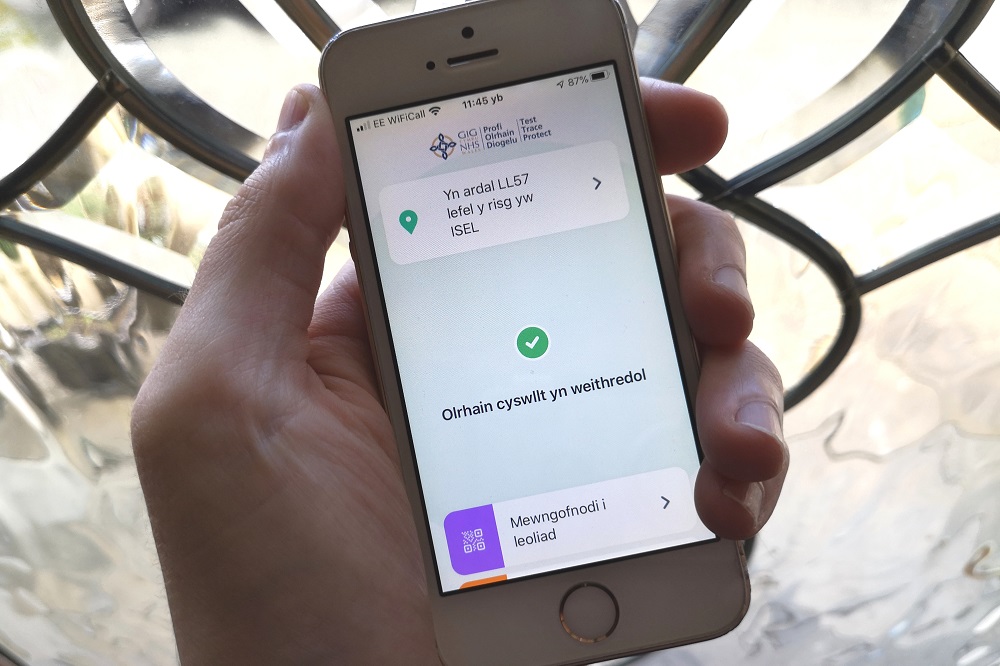
Tories press for changes to Covid isolation rules.
Welsh Conservatives are calling for changes to be made to Covid isolation rules and the NHS Test and Trace app after the surge of Delta variant cases across the UK caused staff shortages due to the number of people self-isolating.
Last week the NHS app, which covers both Wales and England, notified over 500,000 people of the need to self-isolate after contact with someone who had Covid-19 and over the weekend Transport for Wales apologised for cancellations to services as notifications from the app forced a number of staff to self-isolate.
At the weekend it was confirmed Prime Minister Boris Johnson, finance minister Rishi Sunak and health minister Sajid Javid were all isolating after Javid tested positive for the virus.
“We have made great strides with our vaccination programme and the restoration of many freedoms, but our vital public services and economic recovery could be severely hampered by a potential ‘ping-demic’,” Welsh Conservative Shadow Health spokesman, Russell George, said.
“The sensitivity of the NHS app and isolation rules across the UK need an immediate review as it is bizarre double-vaccinated individuals, some who’ve also already had COVID, are being forced to isolate.
“The 10-day self-isolation period for people who have received both jabs needs to come to an end, and a system implemented for those not yet fully vaccinated.
“In Wales, this will require a joined-up approach and I implore both the Welsh and UK Governments to work together immediately so changes can be implemented with pace so our recovery does not grind to a halt.”
Earlier today Downing Street stressed the importance of self-isolating following a request from the NHS Covid app.
“Isolation remains the most important action people can take to stop the spread of the virus,” a spokeswoman for No 10 said.
“Given the risk of having and spreading the virus when people have been in contact with someone with Covid it is crucial people isolate when they are told to do so, either by NHS Test and Trace or by the NHS Covid app.”
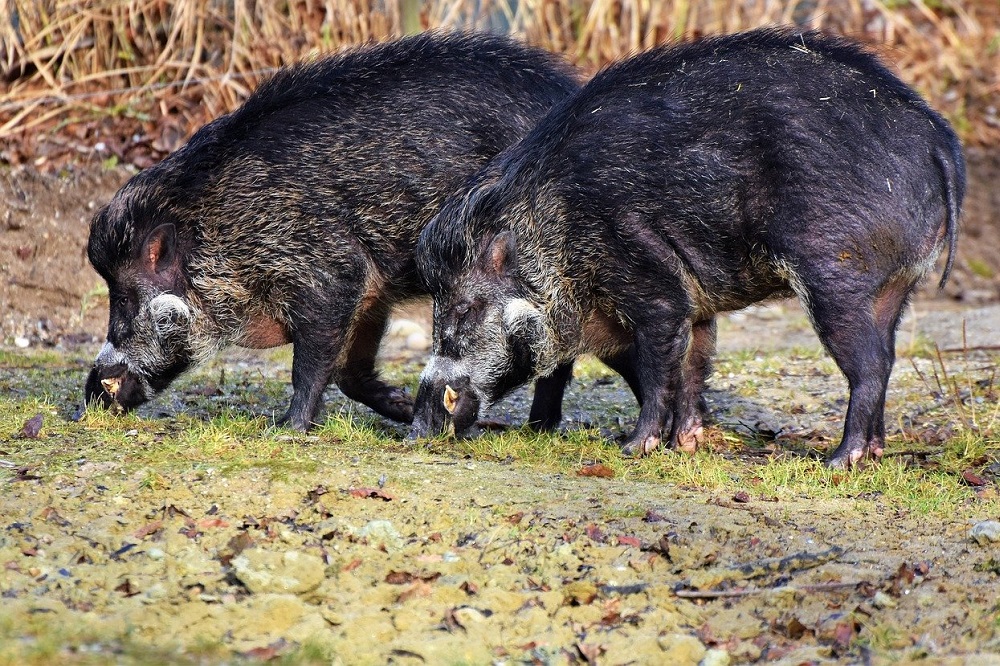
Governments test African swine fever contingency plans
A UK-wide exercise that simulates an outbreak of African swine fever will take place this week to test plans to contain and eliminate the disease in the event that it reached the UK.
ASF is a disease which affects pigs and wild boar and in recent years it has been circulating in parts of Asia and Africa, leading to the deaths of millions of pigs and causing significant disruption to the meat trade. The disease has also spread to parts of Eastern Europe through the movement of wild boar.
Whilst there has never been an outbreak of ASF in the UK, the simulated exercise is an important part of testing the UK’s plans to prevent and respond to a potential future outbreak.
African swine fever poses no risk to human health as it only affects pigs and related animals but the virus can also be transmitted through feeding infected meat to other animals. The UK government currently deems the risk of the virus being brought into the UK in animal products from affected countries, including from illegal imports, to be at ‘medium’ risk.
The exercise, which is named ‘Exercise Holly’, will see the Animal and Plant Health Agency, Defra, Scottish Government, the Welsh Government and the Department of Agriculture, Environment and Rural Affairs in Northern Ireland (DAERA-NI) working together to test the government’s contingency plans to respond to a national outbreak of ASF, enabling teams from across the country to work together to assess the UK’s state of readiness to manage such an outbreak.
In a joint statement, the UK’s four Chief Veterinary Officers said: “The risk of African swine fever arriving in the UK is ever present and would have a devastating impact on our pigs and pig keepers if it ever reached our shores. We regularly test our contingency plans in this way to ensure that we are ready to respond to potential future disease outbreaks.
“Everyone can do their bit to help stop animal diseases spreading to this country through simple actions such as not bringing any pork products back to the UK and disposing of leftovers and food waste in secure bins that wildlife cannot access.”
The virtual exercise starts on 22 July and will conclude on 23 July.
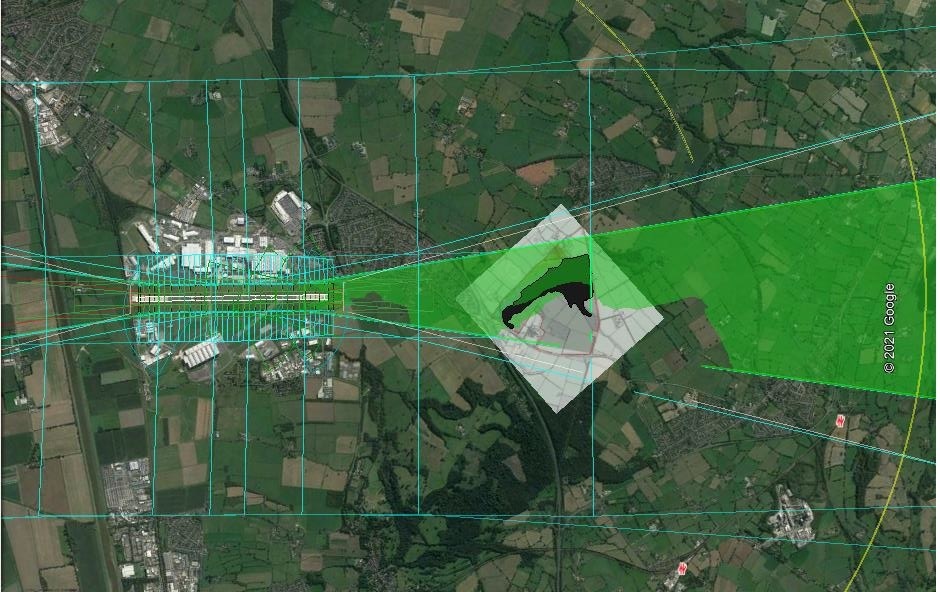
Local Development Plan review on hold over airport concerns
Liam Randall, local democracy reporter
THE examination of a blueprint for about 7,000 new homes in Flintshire is set to be placed on hold amid “significant concerns” over a key housing site.
Inspectors have been running the rule over Flintshire Council’s Local Development Plan (LDP), which sets out locations where development could take place in the county over the next decade, since April.
Last month, officials from the Planning Inspectorate revealed they had major reservations over land earmarked for 300 properties at Warren Hall in Broughton.
It followed Airbus challenging the suitability of the site due to it being close to the final approach for aircraft landing at Hawarden Airport.
The firm, which uses the airport to transport wings from its factory in Broughton, warned the height of the houses would need to be restricted with residents likely to be impacted by high noise levels.
The two inspectors responsible for overseeing the LDP process have now proposed it should be paused for a month to allow the local authority to address the concerns.
In a letter, Siân Worden and Claire MacFarlane said the decision did not indicate any criticism of the council but would allow it to prepare for an extra hearing into the Warren Hall site.
They said: “The service level agreement (SLA) between the Planning Inspectorate and Flintshire County Council states that there are some circumstances where it may be necessary to formally suspend the examination process.
“These include where the inspectors are unable to proceed with their assessment of soundness due to significant concerns being raised which require further work.
“That is the current position and we propose, therefore, that there should be a one month suspension in the Flintshire examination.
“The proposed suspension is a practical device which reflects that the inspectors cannot carry out significant examination work until we have received further information.
“It will provide us with time in which to complete the examination and write our report after such information has been provided.
“The suspension does not imply any criticism or shortcomings in the council’s, the inspectors’ or any other parties’ preparation for, or engagement with, the examination thus far.”
The inspectors suggested the LDP examination should be paused from this Friday until Friday 20 August.
In their previous letter to council planning officials, the pair said they recognised the economic benefits which would result from the Warren Hall site being developed.
However, they advised it should not have a “disproportionate influence” on the land being selected.
In a statement released last month, the council’s chief planning officer said the inspectors’ letter did not represent a final judgement on whether the site would be included in the LDP.
Andrew Farrow stressed they had also asked for similar information on other areas within the plan.
He said: “The examination is still in progress and the inspectors’ letter actually asks the council for further evidence on matters such as viability, the position of Airbus and other matters to which we are preparing our response.
“Therefore, it would be inappropriate to comment until such evidence is made public as part of the examination process.”
The extra hearing on the Warren Hall site is due to be held in September before a final report is issued by the inspectors.
Support our Nation today
For the price of a cup of coffee a month you can help us create an independent, not-for-profit, national news service for the people of Wales, by the people of Wales.





